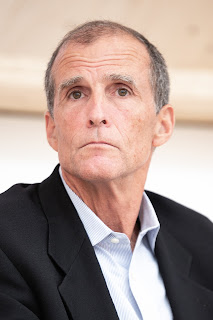Lessons learned: Books matter, but only if everyone is free to speak through them. Good intent matters; that is where kindness starts. It is messy.
The book reader in me generally considers publishers to be the middlemen who spoil my reading experience by tampering with the direct connection with the writer. At the same time, I realised that it is impossible for an individual writer to connect with the reader without the support of a publisher. So for me, publishers were the necessary evil, exploiting their status as the bridge that connects me with the writer and manipulating my reading experience in a way that is beneficial for them, all the while considering creative writers as just money spinning equipment.
I am sure that it still works that way in many parts of the world. But reading a book from the former publisher John Sargent, titled Turning Pages, has made me cut some slack. John Sargent, the ex-CEO of Macmillan, is not a familiar name to me, though I have read books from their publishing group for years. The book, subtitled The Adventures and Misadventures of a Publisher, never tries to deep dive into the intricacies of the creative, logistical, or economic sides of book publishing.
The book consists of a series of anecdotes from the writer's professional and personal life, and mostly recounts his associations with personalities, establishments, and historic events. The narration is rather sober, refusing to overplay or sensationalise the events, and possesses an overall warmth and a humorous inclination. I have noted that the author tries to be fair and empathetic to all, and always looks at things from differing viewpoints. I could also detect a person who always ensured the best for his authors on these pages (though this observation is solely based on what I read on these pages, and I have no inkling about what actually transpired).
The only moments where the book sheds this tone and offers passionate story telling are when he finds himself in a legal tussle against the US Government and Amazon and when Trump tried to cease and desist the publication of Fire and Fury, a book about the first days of the Trump government. It is in these two incidents that we realise the fighting spirit of a man who wants to do the right thing. He refused to hold back, even when all other publishers settled with Amazon, and fought the battle alone, due to the realisation that Amazon's model of pricing ebooks would severely hamper the prospects of writers along with those of his corporation. We find the same striving for fairness when he refuses to let go of employees during COVID time, even when it results in his being shown the way out of Macmillan.
Other interesting instances in the book are his hobnobbing with British aristocracy, getting abused by Sir Jeffrey Archer, his childhood spent in Wyoming, candid photos being shot by paparazzi while he was teaching Britney Spears to operate an iPod inside a gym, his office space in the legendary though cramped Flatiron building, and Jimmy Carter catching him red handed while trying to loot wood. I admire the self-deprecating humour and the immense respect for others that he exhibits throughout the book, even when he is bumbling, like when he high fived Obama and did a 'Hey man!'
I also happened to watch a TedX talk that he gave in which he explained decision making by giving the example of surfing, an activity that he took up when he was forty seven. While researching him online, I came across certain controversies about him that he never mentioned in the book. Once, Macmillan refused to provide digital copies of new books to libraries until a certain period. Libraries had cried foul, and Sargent was made to look like a corporate tyrant bent on destroying public institutions. But as per him, libraries were eating 60% of his firm's revenue from ebook sales. I believe he only had the best interests of his authors and his employees in mind.


No comments:
Post a Comment